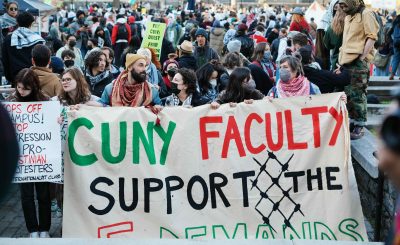By Tashawn Gray. In today’s college environment, economic background plays a powerful, often invisible role in shaping a student’s journey. Access to resources, participation in campus life, and long-term opportunities are all influenced by a student’s financial backgrounds. In this interview, Jamal Biggs, the director of the QCC Male Resource Center (MRC) shares how he perceives economic inequality affecting students and the systems that serve them.
The foundation of success starts with a support system. Personal and social support has been instrumental in Jamal Biggs personal development and in the work he now leads. He stated “The resources that have “helped me during uncomfortable moments, and have sustained a healthy accountability amongst each other.” These relationships have evolved into a network of opportunity, something he also encourages students to build intentionally.
When I asked Jamal who he turned to for support, he emphasized the lasting power of relationships forged early in life. “My close friends and family are who I rely on for opportunities and support. My friends I met during high school and college, and we have only grown closer since then.” It’s this kind of long-term trust that creates safe spaces for growth and access to new opportunities both personally and professionally.
Building a student center from scratch requires a blend of technical and interpersonal skills. Biggs highlighted the importance of “public speaking, data analysis, problem solving, critical thinking, creativity organization, and collaboration”. He rooted the QCCMRC work in student voice “I started the process by speaking directly to students and student clubs to gain an understanding of what students were seeking. Then went into the programming events with the motto “Nothing about you without you.” His intentional focus was on creating programs that reflect student’s real needs on and off campus.
Economic status doesn’t just shape access, it influences how students are perceived in academic and professional spaces. “I think background, finances, education, and social education all play a part in competitive environments. Relationships are important to get your foot in the door for opportunities that can lead to financial or career advancement”.
Jamal remains grounded in his identity by saying “I think I stand in a solid status. I always view myself in the working class. I strive to work as hard as I can everyday and view every day as a learning experience for the next day”. Raised in a family that emphasized learning, Jamal benefited from at home academic support. “My parents were big on education growing up. My siblings all had different specialties, so I learned about their support in relation to tutoring for specific subjects, technology, and extracurricular programs.” Jamal realized that many students don’t have this advantage and that larger structural barriers can hold them back.
Jamal pointed to a major but often ignored challenge for low income students. He stated “Lack of financial literacy courses and programs in education. Individuals reaching 18 receive an abundance of credit card offers that they truly do not fully understand”. Without this education, students may opt out of applying for certain colleges due to fear of debt: “Depending on their supportive system, they may remove themselves from contentions because of fear of loans and debt.
Participation in college life often comes with a cost financially and emotionally. Jamal stated “if a student feels that attending school is too expensive or that they would only obtain the necessary relationships and stature if they attend Ivy League Colleges. They may feel that they may never reach the levels that college can take them. Jamal stated that “if they financially cannot afford clothing to attend those events or pay to attend those events then they may feel like that it isn’t for them”.
Though Jamal hasn’t directly experienced this, he’s heard many students describe being treated unfairly because of their economic status. Jamal states “Students from low income backgrounds have expressed that professors and teachers had higher expectations for them compared to students in better economic backgrounds. Some professors said to students that they shouldn’t continue to attend school because it seems as though education isn’t a priority.”. He disagrees with that approach entirely. “I’m completely opposed to this, if they aren’t acquiring the desired results, then it’s our job to figure out why and how we can support”.
Jamal believes real changes require institutional and policy level shifts. “An increase in on-campus employment, programs that assist students with housing especially for commuter schools, and fresh start programs that assist students with past due tuition balances”. Through his leadership at the QCC MRC Jamal advocates not only for support but for understanding. Economic equality is not just about access to dollars, it’s also about inclusion, dignity, and the recognition that students from all walks of life deserve the tools to succeed. His message is clear. If we want to create truly equitable learning environments we must listen, act, and structure institutions to support every student, not just those who can afford it.




